Lecture
The term "educational psychology" refers to two different sciences. One of them is basic science , which is the first branch of psychology. It is designed to study the nature and laws of the process of learning and education.
The applied science is also developing under the same term - “pedagogical psychology”, the purpose of which is to use the achievements of all branches of psychology to improve pedagogical practice. Abroad, this applied part of psychology is often called school psychology .

 The term "pedagogical psychology" was proposed by P.F. Kapterev in 1874 (Kapterev PF, 1999; abstract). Initially, it existed along with other terms adopted to refer to disciplines that occupy the border position between pedagogy and psychology: “pedology” (O. Khrisman, 1892), “experimental pedagogy” (E. Meiman, 1907). Experimental pedagogy and pedagogical psychology were first interpreted as different names for the same field of knowledge (L. S. Vygotsky, P. P. Blonsky) (see Media Library). During the first third of the XX century. their meanings were differentiated. Experimental pedagogy began to be understood as a field of research aimed at the application of experimental psychology data to pedagogical reality; pedagogical psychology - as a field of knowledge and psychological basis of theoretical and practical pedagogy. (see Chr. 1.1)
The term "pedagogical psychology" was proposed by P.F. Kapterev in 1874 (Kapterev PF, 1999; abstract). Initially, it existed along with other terms adopted to refer to disciplines that occupy the border position between pedagogy and psychology: “pedology” (O. Khrisman, 1892), “experimental pedagogy” (E. Meiman, 1907). Experimental pedagogy and pedagogical psychology were first interpreted as different names for the same field of knowledge (L. S. Vygotsky, P. P. Blonsky) (see Media Library). During the first third of the XX century. their meanings were differentiated. Experimental pedagogy began to be understood as a field of research aimed at the application of experimental psychology data to pedagogical reality; pedagogical psychology - as a field of knowledge and psychological basis of theoretical and practical pedagogy. (see Chr. 1.1)
Pedagogical psychology is a branch of psychology that studies the patterns of human development in terms of training and education . It is closely related to pedagogy, child and differential psychology, and psychophysiology.
When considering pedagogical psychology, like any other branch of science, it is necessary, first of all, to distinguish the concepts of its object and subject.
In the general scientific interpretation, the object of science is understood as that area of reality, on the study of which this science is directed. Often the object of study is fixed in the very name of science.
The subject of science is that side or sides of the object of science by which it is represented in it. If an object exists independently of science, then the object is formed together with it and fixed in its conceptual system. The object does not fix all the sides of the object, although it may at the same time include what is missing in the object. In a sense, the development of science is the development of its subject.
Each object can be studied in many sciences. Thus, man is studied by physiology, sociology, biology, anthropology, etc. But each science is based on its subject, i.e. what exactly is she studying in the object.
As the analysis of the points of view of various authors shows, many scientists determine the status of pedagogical psychology in different ways, which may indicate the ambiguity of the decision on the subject of pedagogical psychology (see animation).
For example, V.A. Krutetsky believes that pedagogical psychology "studies the patterns of mastering knowledge, skills and abilities, explores individual differences in these processes ... patterns of formation of creative active thinking in schoolchildren ... changes in the psyche, that is, the formation of mental neoplasms" ( V. Krutetsky, 1972. p. 7 ).
A completely different point of view is held by V.V. Davydov. He proposes to consider pedagogical psychology as part of age psychology. The scientist argues that the specificity of each age determines the nature of the manifestation of the laws of students learning the knowledge, therefore, the teaching of a particular discipline should be structured differently. Moreover, some disciplines at certain ages are generally inaccessible to students. This position V.V. Davydov due to his emphasis on the role of development, its impact on the course of training. Training is seen by him as a form, and development as a content that is realized in it.
There are a number of other points of view. In the future, we will adhere to the generally accepted interpretation, according to which the subject of pedagogical psychology are the facts, mechanisms and patterns of human social and cultural experience development, patterns of intellectual and personal development of a child as a subject of educational activity organized and controlled by a teacher in different conditions of the educational process (Zimnyaya I.A. , 1997; abstract).
The psychology of learning explores, above all, the process of mastering knowledge and skills and skills appropriate to them. Its task is to identify the nature of this process, its characteristics and qualitatively unique stages, conditions and criteria for a successful course. A special task of pedagogical psychology is the development of methods to diagnose the level and quality of learning.
Studies directly of the process of learning, carried out from the standpoint of the principles of domestic psychology, have shown that the process of mastering is a person performing certain actions or activities . Knowledge is always acquired as elements of these actions, and skills and abilities occur when bringing digestible actions to certain indicators on some of their characteristics.

 Learning is a system of special actions that students need to complete the main stages of the learning process . The actions constituting the activity of the doctrine are assimilated according to the same laws as any other (Ilyasov II, 1986; abstract).
Learning is a system of special actions that students need to complete the main stages of the learning process . The actions constituting the activity of the doctrine are assimilated according to the same laws as any other (Ilyasov II, 1986; abstract).
Most research on the psychology of learning is aimed at identifying patterns of formation and functioning of cognitive activity in the current learning system. In particular, a wealth of experimental material has been accumulated, revealing typical flaws in the assimilation of various scientific concepts by secondary school students. The role of life experience of students, the nature of the presented educational material in the assimilation of knowledge was also studied.
In the 70s. XX century. in pedagogical psychology, they increasingly began to use another way: the study of the laws governing the development of knowledge and cognitive activity in general under conditions of specially organized training. Studies have shown that the management of the learning process significantly changes the course of mastering knowledge and skills. The conducted studies are important for finding the most optimal ways of learning and identifying conditions for effective mental development of students.
Pedagogical psychology also studies the dependence of the mastering of knowledge, abilities, skills, the formation of various personality traits on the individual characteristics of students (Nurminsky II, et al., 1991; abstract).
In the national pedagogical psychology, such theories of the doctrine as the associative-reflex theory, the theory of the gradual formation of mental actions, etc. have been created. Among the Western theories of the doctrine, the behavioral theory is most common
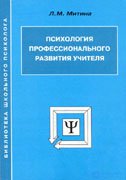 3. The subject of teacher psychology is the psychological aspects of the formation of professional pedagogical activity, as well as those personality traits that contribute to or hinder the success of this activity. The most important tasks of this section of educational psychology are:
3. The subject of teacher psychology is the psychological aspects of the formation of professional pedagogical activity, as well as those personality traits that contribute to or hinder the success of this activity. The most important tasks of this section of educational psychology are:
The results of psychological and pedagogical research are used in the design of the content and teaching methods, the creation of textbooks, the development of diagnostic tools and the correction of mental development.
In pedagogical psychology there are a number of problems, the theoretical and practical significance of which justifies the separation and existence of this field of knowledge (see Fig. 3). Consider and discuss some of them.
1. The problem of the ratio of learning and development. One of the most important problems of educational psychology is the problem of the ratio of learning and mental development.
 The problem in question is a derivative of the general scientific problem - problems of the relationship between the biological and the social in a person, or as problems of genotypic and environmental conditionality of the human psyche and behavior (see Chap. 1.2). The problem of genetic sources of psychology and human behavior is one of the most important in the psychological and pedagogical sciences. After all, the fundamental solution of the question of the possibilities of teaching and raising children, of a person in general (Biological ..., 1977; annotation)
The problem in question is a derivative of the general scientific problem - problems of the relationship between the biological and the social in a person, or as problems of genotypic and environmental conditionality of the human psyche and behavior (see Chap. 1.2). The problem of genetic sources of psychology and human behavior is one of the most important in the psychological and pedagogical sciences. After all, the fundamental solution of the question of the possibilities of teaching and raising children, of a person in general (Biological ..., 1977; annotation)
According to modern science, it is almost impossible to directly influence through the training and upbringing of the genetic apparatus and, therefore, that which is given genetically cannot be rehabilitated. On the other hand, education and training themselves have tremendous potential in terms of the mental development of an individual, even if they do not affect the genotype itself and do not affect organic processes.
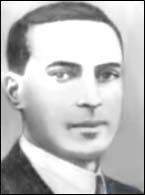 In domestic psychology, this problem was first formulated by L.S. Vygotsky in the early 30s. Twentieth century. (Vygotsky LS, 1996; abstract).
In domestic psychology, this problem was first formulated by L.S. Vygotsky in the early 30s. Twentieth century. (Vygotsky LS, 1996; abstract).
He substantiated the leading role of learning in development, noting that learning should go ahead of development, to be the source of new development.
.
2. The problem of the ratio of training and education. Another problem, which is closely connected with the previous one, is the problem of the ratio of training and education. The processes of training and education in their unity represent the pedagogical process, the purpose of which is education, development and the formation of personality. In essence, both of them occur in the interaction of a teacher and a student, an educator and a pupil, an adult and a child who are in certain conditions of life, in a certain environment.
 How does the process of education and the process of education take place directly? These and many other questions constitute the essence of the problem under consideration
How does the process of education and the process of education take place directly? These and many other questions constitute the essence of the problem under consideration3. The problem of accounting sensitive periods of development in training. One of the most important in studying the development of children is the problem of finding and using the maximum possible use for the development of each child of a sensitive period in his or her life. Under the sensitive periods in psychology are understood the periods of ontogenetic development, when the developing organism is especially sensitive to a certain kind of influence of the surrounding reality . For example, at the age of about five years, children are particularly sensitive to the development of phenomenal hearing, and after this period, this sensitivity somewhat decreases. Sensitive periods are periods of optimal periods for the development of certain aspects of the psyche: processes and properties. An excessively early start of learning something can adversely affect mental development, just as a very late start of learning can be ineffective (Obukhova LF, 1996, abstract).
The difficulty of the problem under consideration lies in the fact that all sensitive periods in the development of the intellect and the child’s personality, their beginning, duration, and completion are not known. Approaching the study of children individually, it is necessary to learn how to predict the onset of various sensitive periods in the development of each child. 
4. The problem of gifted children. The problem of giftedness in Russian psychology has been studied more closely only in the last decade. Under the total talent refers to the development of common abilities that determine the range of activities in which a person can achieve great success. Gifted children - “these are children who discover this or that special or general giftedness” (Russian ..., 1993-1999, T. 2. P. 77; abstract).
 ;
;5. The problem of children's readiness for school. Готовность детей к обучению в школе - это "совокупность морфологических и психологических особенностей ребенка старшего дошкольного возраста, обеспечивающая успешный переход к систематическому организованному школьному обучению" (Российская…, Т.1. С. 223-224).
В педагогической и психологической литературе наряду с термином "готовность к школьному обучению" употребляется термин "школьная зрелость". Эти термины почти синонимичны, хотя второй в большей мере отражает психофизиологический аспект органического созревания.
Решение перечисленных и других психолого-педагогических проблем требует от учителя или воспитателя высокой профессиональной квалификации, немалую часть которой составляют психологические знания, умения и навыки .

 The specification of the subject of pedagogical psychology also requires the determination of its place among other sciences, first of all, the establishment of its relationship to pedagogical disciplines, to general and age psychology.
The specification of the subject of pedagogical psychology also requires the determination of its place among other sciences, first of all, the establishment of its relationship to pedagogical disciplines, to general and age psychology.
По мнению Б.Г. Ананьева, педагогическая психология - пограничная, комплексная отрасль знания, которая "заняла определенное место между психологией и педагогикой, стала сферой совместного изучения взаимосвязей между воспитанием, обучением и развитием подрастающих поколений" (Ананьев Б.Г., 2001; аннотация).
В связи с такой "пограничностью" педагогики и психологии считаем необходимым, прежде всего, уточнить взаимосвязи между этими двумя науками.
Психология органично связана с педагогикой (см. рис. 5).
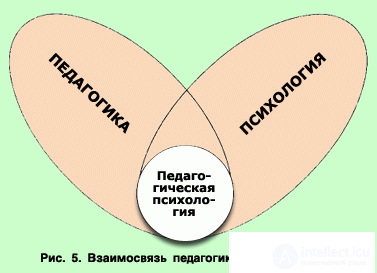
Between them there are several "nodes" of communication (see Fig. 6).
The main communications center is the subject of these sciences . Psychology studies the laws of the development of the human psyche. Pedagogy develops the laws of personal development management. Upbringing, education of children and adults is nothing other than a purposeful change in this psyche (for example, thinking, activity). Therefore, they can not be carried out by specialists who do not possess psychological knowledge.
The second node of communication of two sciences - indicators and criteria for learning and education of the individual . Степень продвинутости знаний школьников регистрируется по изменениям памяти, запасов знаний, способностям использовать знания в практических целях, владению приемами когнитивной деятельности, скорости воспроизведения знаний, владению терминологией, навыками переноса знаний в нестандартные ситуации и т.п. Воспитанность же фиксируется в мотивированных поступках, системе сознательного и импульсивного поведения, стереотипах, навыках деятельности и суждений. Все это означает, что симптомами достижений в образовательно-воспитательной работе взрослых с детьми выступают сдвиги в психике, в мышлении и поведении учащихся. Иначе говоря, результаты педагогической деятельности диагностируются по изменениям психологических характеристик воспитуемых.
Третий узел связи - это методы исследования. Межнаучные коммуникации двух отраслей знания имеют место и в методах исследований педагогики и психологии. Многие инструменты психологического научного поиска с успехом служат решению педагогических исследовательских задач (например, психометрия, парное сравнение, рейтинг, психологические тесты и др.).

 Связь педагогической психологии со смежными науками, в том числе возрастной психологией, является двухсторонней (см. рис.7). Она руководствуется методологией исследования, представляющей собой "проекцию" общепсихологической науки; использует данные, поставляемые возрастной психологией и другими науками. Одновременно педагогическая психология сама поставляет данные не только для педагогической науки, но и для общей и возрастной психологии, психологии труда, нейропсихологии, патопсихологии и др.
Связь педагогической психологии со смежными науками, в том числе возрастной психологией, является двухсторонней (см. рис.7). Она руководствуется методологией исследования, представляющей собой "проекцию" общепсихологической науки; использует данные, поставляемые возрастной психологией и другими науками. Одновременно педагогическая психология сама поставляет данные не только для педагогической науки, но и для общей и возрастной психологии, психологии труда, нейропсихологии, патопсихологии и др.
В последнее время возрастная психология приобретает все большее значение как фундамент для педагогической психологии. Возрастная психология - это теория развития психики в онтогенезе . Она изучает закономерности перехода от одного периода к другому на основе смены типов ведущей деятельности, изменения социальной ситуации развития, характера взаимодействия человека с другими людьми (Обухова Л.Ф., 1996; аннотация).
Возраст характеризуется не соотношением отдельных психических функций, а теми специфическими задачами освоения сторон действительности, которые приняты и решаются человеком, а также возрастными новообразованиями.
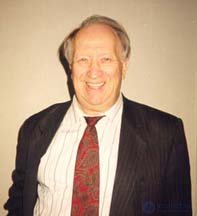 Исходя из этого, В.В. Давыдовым был сформулирован ряд принципов возрастной психологии (см. рис. 8):
Исходя из этого, В.В. Давыдовым был сформулирован ряд принципов возрастной психологии (см. рис. 8):
I.A. Zimnaya called the first stage “general pedagogical” with a clearly felt need to “psychologize pedagogy” (according to Pestalozzi).
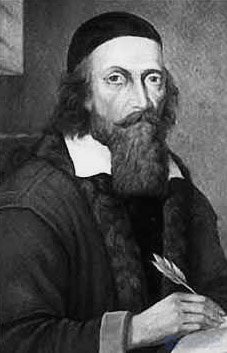
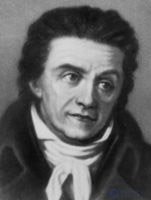 The role of psychology in the practice of teaching and upbringing was realized long before the formation of educational psychology into an independent scientific branch. Ya.A. Comenius, J. Locke, J.-J. Rousseau, I.G. Pestalozzi, F.A. Disterveg et al. Stressed the need to build a pedagogical process based on psychological knowledge about the child.
The role of psychology in the practice of teaching and upbringing was realized long before the formation of educational psychology into an independent scientific branch. Ya.A. Comenius, J. Locke, J.-J. Rousseau, I.G. Pestalozzi, F.A. Disterveg et al. Stressed the need to build a pedagogical process based on psychological knowledge about the child.
Analyzing the contribution of G. Pestalozzi, P.F. Kapterev notes that "Pestalozzi understood all learning as a matter of the student’s creativity, all knowledge as the development of activity from within, as acts of initiative, self-development" (Kapterev P.F., 1982. P. 293). Pointing to the differences in the development of a child’s mental, physical and moral abilities, Pestalozzi emphasized the importance of their connection and close interaction in learning, which moves from simple to more complex, in order to ensure the harmonious development of a person.
The idea of developing training KD Ushinsky called "the great discovery of Pestalozzi" (Ushinsky KD, 1948, p. 95). The main purpose of Pestalozzi's training was to instill the minds of children to be active, develop their cognitive abilities, develop their ability to think logically and briefly express the essence of learned concepts in words. He developed a system of exercises, arranged in a certain sequence and aimed at setting in motion the inherent desire of man for the natural forces of man. However, the task of developing students Pestalozzi to some extent subordinated to another, no less important task of training - to equip students with knowledge. Criticizing the modern school for verbalism and cramming, dulling the spiritual strength of children, the scientist sought to psychologize learning, to build it in accordance with the child’s “natural way of knowing”. The starting point of this path Pestalozzi considered sensual perception of objects and phenomena of the surrounding world.
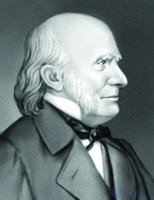 Follower I.G. Pestalozzi was FA Disterveg, who considered nature conformance, cultural conglomeration, amateur activities as the basic principles of education (Disterweg, FA, 1956).
Follower I.G. Pestalozzi was FA Disterveg, who considered nature conformance, cultural conglomeration, amateur activities as the basic principles of education (Disterweg, FA, 1956).
Disterveg stressed that only knowing the psychology and physiology, the teacher can ensure the harmonious development of children. In psychology, he saw "the foundation of the science of education," and believed that man possesses innate instincts that are inherent in the desire for development. The task of education is to provide such independent development. The scientist understood amateur activity as an activity, initiative and considered it to be the most important personality trait. In the development of children's initiative, he saw and the ultimate goal, and an indispensable condition for all education.
 F. Disterveg determined the value of individual subjects based on how much they stimulate the student's mental activity; contrasted the developing method of teaching the scientific (communicating). He formulated the fundamentals of the didactics of developmental education in clear rules.
F. Disterveg determined the value of individual subjects based on how much they stimulate the student's mental activity; contrasted the developing method of teaching the scientific (communicating). He formulated the fundamentals of the didactics of developmental education in clear rules.
Of particular importance for the development of educational psychology was the work of KD Ushinsky. His work, primarily the book "Man as a Subject of Education. The Experience of Pedagogical Anthropology" (1868-1869), created the prerequisites for the emergence of educational psychology in Russia. The upbringing of the scientist was considered as "the creation of history." The subject of education is a person, and if pedagogy wants to educate a person in all respects, then she must first know him in all respects. This meant the study of the physical and mental characteristics of a person, the effects of "unintentional upbringing" - the social environment, the "spirit of the times", its culture and social relations.
The second stage is associated with the period when pedagogical psychology began to take shape as an independent branch, accumulating the achievements of pedagogical thought of previous centuries.
As an independent field of knowledge, pedagogical psychology began to take shape in the middle of the 19th century, and it was developing intensively since the 80s. XIX century.
The value of the initial period of development of educational psychology is determined primarily by the fact that in the 60s. XIX century. formulated the fundamental provisions that determine the formation of educational psychology as an independent scientific discipline. At that time, tasks were set, on which the efforts of scientists should be focused, and the problems that needed to be investigated in order to put the pedagogical process on a scientific basis.
Guided by the needs of education and training, the task of forming a comprehensive personality, scientists of that period raised the question of a broad comprehensive study of the child and the scientific basis for guiding his development. The idea of a holistic, comprehensive study of the child sounded very convincing. Consciously not wanting to limit the theoretical justification of pedagogy to one psychology, they stimulated the development of research at the junction of different sciences. Consideration in unity and interrelation of the three main sources of pedagogy - psychology, physiology, logic - served as the basis for contacts between psychology, physiology and medicine, between psychology and didactics.
This period is characterized by the formation of a special psychological and pedagogical direction - pedology (J.M. Baldwin, E.Kirkpatrick, E.Meiman, P.P. Blonsky, L.S. Vygotsky, etc.), in which it is comprehensively based on the totality of psychophysiological, Anatomical, psychological and sociological measurements determined the behavior of the child in order to diagnose its development (see animation).
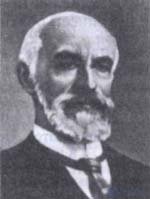 Pedology (from the Greek. Pais - child and logos - the word, science) - flow in psychology and pedagogy, which arose at the turn of the XIX-XX centuries, due to the penetration of evolutionary ideas into pedagogy and psychology and the development of applied branches of psychology and experimental pedagogy .
Pedology (from the Greek. Pais - child and logos - the word, science) - flow in psychology and pedagogy, which arose at the turn of the XIX-XX centuries, due to the penetration of evolutionary ideas into pedagogy and psychology and the development of applied branches of psychology and experimental pedagogy .
The American psychologist S. Hall, who created the first pedological laboratory in 1889, was recognized as the founder of pedology; the term was invented by his pupil - O. Kmentment. But back in 1867, KD Ushinsky in his work “Man as a Subject of Education” anticipated the emergence of pedology: “If pedagogy wants to educate a person in all respects, then she must first recognize him in all respects”.
In the West, S. Hall, J. Baldwin, E. Meiman, V. Preyer, and others practiced pedology. The founder of Russian pedology is the brilliant scientist and organizer A. P. Nechaev. A great contribution to science was also made by the remarkable scientist V.M. Bekhterev.
The first 15 post-revolutionary years were favorable: there was a normal scientific life with stormy discussions in which approaches were developed and developmental difficulties that were inevitable for a young science were overcome.
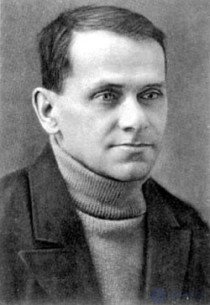 Pedology sought to study the child, while studying comprehensively, in all its manifestations, and taking into account all the influencing factors. P.P. Blonsky (1884-1941) defined pedology as a science about the age development of a child in a certain socio-historical environment (P. Blonsky, 1999; annotation).
Pedology sought to study the child, while studying comprehensively, in all its manifestations, and taking into account all the influencing factors. P.P. Blonsky (1884-1941) defined pedology as a science about the age development of a child in a certain socio-historical environment (P. Blonsky, 1999; annotation).
Pedologists worked in schools, kindergartens, various teenage associations. Psychological and pedological counseling was actively carried out; work was done with parents; the theory and practice of psychodiagnostics was developed. In Leningrad and Moscow, pedology institutes operated, where representatives of various sciences tried to trace the development of a child from birth to adolescence. Pedologists were trained very thoroughly: they received knowledge of pedagogy, psychology, physiology, child psychiatry, neuropathology, anthropometry, anthropology, sociology, and theoretical classes were combined with everyday practical work. 
In the 30s. XX century. Criticism of many positions of pedology began (problems of the subject of pedology, bio- and sociogenesis, tests, etc.), which resulted in two resolutions of the Central Committee of the CPSU (b). Pedology was crushed, many scientists repressed, the fate of others crippled. All pedological institutes and laboratories closed. Pedology has become extinct from the curricula of all universities. The labels were generously glued: L.S. Vygotsky declared "eclectic", M.Ya. Basov and P.P. Blonsky - "propagandists of fascist ideas." Fortunately, many were able to avoid a similar fate, having managed to retrain. For more than half a century, it was carefully concealed that the color of Soviet psychology — Basov, Blonsky, Vygotsky, Kornilov, Kostyuk, Leontyev, Luria, Elkonin, Myasishchev and others, as well as teachers Zankov and Sokolyansky were pedologists. Not long ago, when publishing Vygotsky’s works, his lectures on pedology had to be renamed into lectures on psychology
A number of works by P.P. Blonsky, the work of L.S. Vygotsky and his staff on child psychology laid the foundation for modern scientific knowledge about the mental development of a child. Trudy I.M. Schelovanova, M.P. Denisova, N.L. Figurine, created in the pedological institutions by name, contained valuable factual material that was included in the fund of modern knowledge about the child and its development. These works were the basis of the current system of education in infancy and early childhood, and the psychological studies of P.P. Blonsky, L.S. Vygotsky provided the opportunity to develop theoretical and applied problems of age and educational psychology in our country.
The relationship of psychology with pedagogy gave a powerful impetus to the study of the age characteristics of children, the identification of the conditions and factors contributing to children's development. The desire to make psychological pedagogy, to introduce psychology into the pedagogical process became the basis on which the system of educational psychology was built (although the term “pedagogical psychology” itself was not used at that time), led to the participation of scientists of various specialties in the development of its problems.
By the end of the XIX century. Russian psychological and pedagogical science not only formed the main areas of scientific activity, but also accumulated significant data that made it possible to formulate practical problems.
The idea of a psychophysiological study of a child and the use of its results in teaching practice has been reinforced in substantiating the possibility of studying mental phenomena experimentally. The use of experiment in training conditions undertaken by I.A. Sikorsky in 1879, initially did not receive a wide response in science. But with the formation of psychological laboratories, starting from the mid-80s, the experiment began to enter life, an active desire arose to associate with it the pedagogical process, i.e. create a qualitatively new science of education and training.
The successes of psychological and pedagogical science aroused interest, on the one hand, among practicing teachers, and on the other hand, of philosophers and psychologists who had not previously been involved in school education. Teachers felt a clear need for strong psychological knowledge, and psychologists realized how much interesting and instructive is contained in school life. The state of science and practice clearly showed that school and science must meet each other. But the whole question was how to do it, how to organize psychological studies so that they were directly directed to solving pedagogical problems. Equally inevitable was the question of who should conduct such research.
The solution of complex theoretical and methodological problems of educational psychology became impossible without their discussion and comprehensive analysis. This was demanded by the further development of specific studies, the determination of the main directions of movement of research thought. In other words, it was necessary to significantly expand the scientific and organizational activities.
The development of educational psychology in Russia since the beginning of the XX century. firmly on scientific foundations. The status of this science as an independent branch of knowledge, having an important theoretical and practical significance, has been established. Research in this area has taken a leading place in the domestic psychological and educational science. This was due to the success in the study of age development, ensuring the authority of age and pedagogical psychology not only in the scientific sphere, but also in solving practical problems of education and training.
 Not only in science, but also in public opinion the point of view was approved, according to which the knowledge of the laws of child development is the basis for the correct construction of the education system. Therefore, the development of these problems involved scientists of various specialties, the best Russian minds, outstanding theorists and organizers of science who enjoyed great prestige, in particular: V.M. Bekhterev, P.F. Lesgaft, I.P. Pavlov. A whole galaxy of domestic psychologists has been formed, actively engaged in theoretical and organizational issues of studying child development and building the scientific foundations of education and training. This galaxy consisted primarily of PP. Blonsky, P.F. Kapterev, A.F. Lazursky, N.N. Lange, A.P. Nechaev, M.M. Rubinstein, I.A. Sikorsky, G.I. Chelpanov et al. Thanks to the efforts of these scientists, intensive theoretical, methodological, and scientific-organizational activities aimed at deepening and expanding scientific work, at promoting psychological and pedagogical knowledge among practitioners of the educational system, and at improving their skills have developed. On their initiative, specialized research centers were established to provide research and educational activities and training. Small laboratories, circles, study rooms for the development of children at some educational institutions spread, psychological and pedagogical societies were created, scientific and pedagogical circles wishing to direct their efforts to the improvement of education and training. Pedagogical psychology has become an integral part of the content of education in pedagogical educational institutions. The question was raised about the study of the foundations of psychology in the upper grades of secondary school, and training courses in psychology were developed.
Not only in science, but also in public opinion the point of view was approved, according to which the knowledge of the laws of child development is the basis for the correct construction of the education system. Therefore, the development of these problems involved scientists of various specialties, the best Russian minds, outstanding theorists and organizers of science who enjoyed great prestige, in particular: V.M. Bekhterev, P.F. Lesgaft, I.P. Pavlov. A whole galaxy of domestic psychologists has been formed, actively engaged in theoretical and organizational issues of studying child development and building the scientific foundations of education and training. This galaxy consisted primarily of PP. Blonsky, P.F. Kapterev, A.F. Lazursky, N.N. Lange, A.P. Nechaev, M.M. Rubinstein, I.A. Sikorsky, G.I. Chelpanov et al. Thanks to the efforts of these scientists, intensive theoretical, methodological, and scientific-organizational activities aimed at deepening and expanding scientific work, at promoting psychological and pedagogical knowledge among practitioners of the educational system, and at improving their skills have developed. On their initiative, specialized research centers were established to provide research and educational activities and training. Small laboratories, circles, study rooms for the development of children at some educational institutions spread, psychological and pedagogical societies were created, scientific and pedagogical circles wishing to direct their efforts to the improvement of education and training. Pedagogical psychology has become an integral part of the content of education in pedagogical educational institutions. The question was raised about the study of the foundations of psychology in the upper grades of secondary school, and training courses in psychology were developed.
In the 40s. a lot of research has appeared on the psychological issues of learning various subjects: a) arithmetic (N. Menchinskaya); b) native language and literature (D.N. Bogoyavlensky, L.I. Bozhovich, O.I. Nikiforova) and others. A number of works are connected with the tasks of teaching reading and writing (N.A. Rybnikov, L.M. Schwartz, TG Egorov, D. B. Elkonin, and others.).
The main research results were reflected in the works of A.P. Nechaev, A. Binet and B. Henri, M. Offner, E. Meiman, V.A. Laya and others, who study the features of memorization, development of speech, intelligence, the mechanism of developing skills, etc., as well as in the studies of G. Ebbingauz, J. Piaget, A. Vallon, J. Dewey, S. Fran, Ed. Clapereda; in the experimental study of the characteristics of learning (J. Watson, Ed. Tolman, G. Gazri, T. Hull, B. Skinner); in the study of the development of children's speech (J. Piaget, LS Vygotsky, PP Blonsky S. and K. Bühler, V. Stern, and others); in the development of special educational systems - Waldorf School (R. Steiner), M. Montessori School.
The basis for the selection of the third stage is the creation of a number of psychological training theories proper, i.e. development of the theoretical foundations of educational psychology.
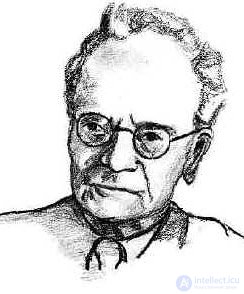 So, in 1954 B.F. Skinner put forward the idea of programmed learning , and in the 60s. L.N. Landa formulated the theory of his algorithmization; in the 70s-80s V. Okon, M.I. Махмутов построили целостную систему проблемного обучения, что, с одной стороны, продолжило разработку системы Дж. Дьюи, полагавшего, что обучение должно идти через решение проблем, а с другой - соотносилось с положениями О. Зельца, К. Дункера, С.Л. Рубинштейна, А.М. Матюшкина и других о проблемном характере мышления, его фазности, начале возникновения мысли в проблемной ситуации (П.П. Блонский, С.Л. Рубинштейн).
So, in 1954 B.F. Skinner put forward the idea of programmed learning , and in the 60s. L.N. Landa formulated the theory of his algorithmization; in the 70s-80s V. Okon, M.I. Махмутов построили целостную систему проблемного обучения, что, с одной стороны, продолжило разработку системы Дж. Дьюи, полагавшего, что обучение должно идти через решение проблем, а с другой - соотносилось с положениями О. Зельца, К. Дункера, С.Л. Рубинштейна, А.М. Матюшкина и других о проблемном характере мышления, его фазности, начале возникновения мысли в проблемной ситуации (П.П. Блонский, С.Л. Рубинштейн).
В 1957-1958 гг. появились первые публикации П.Я. Гальперина и затем в начале 70-х годов - Н.Ф. Талызиной, в которых излагались основные позиции теории поэтапного формирования умственных действий , впитавшей в себя основные достижения и перспективы педагогической психологии. В то же время в работах Д.Б. Эльконина, В.В. Давыдова разрабатывалась теория развивающего обучения , возникшая в 70-х гг. на основе общей теории учебной деятельности (сформулированной этими же учеными и развиваемой А.К. Марковой, И.И. Ильясовым, Л.И. Айдаровой, В.В. Рубцовым и др.), а также в экспериментальной системе Л.В. Занкова.
 В период 40-50-х гг. S.L. Рубинштейн в "Основах психологии" (Рубинштейн С.Л., 1999; аннотация) дал развернутую характеристику учения как усвоения знаний, которая с разных позиций детально разрабатывалась Л.Б. Ительсоном, Е.Н. Кабановой-Меллер и другими, а также Н.А. Менчинской и Д.Н. Богоявленским в концепции экстериоризации знаний. Появившаяся в середине 70-х гг. книга И. Лингарта "Процесс и структура человеческого учения" (Лингарт И., 1970) и книга И.И. Ильясова "Структура процесса учения" (Ильясов И.И., 1986; аннотация) позволили сделать широкие обобщения в этой области.
В период 40-50-х гг. S.L. Рубинштейн в "Основах психологии" (Рубинштейн С.Л., 1999; аннотация) дал развернутую характеристику учения как усвоения знаний, которая с разных позиций детально разрабатывалась Л.Б. Ительсоном, Е.Н. Кабановой-Меллер и другими, а также Н.А. Менчинской и Д.Н. Богоявленским в концепции экстериоризации знаний. Появившаяся в середине 70-х гг. книга И. Лингарта "Процесс и структура человеческого учения" (Лингарт И., 1970) и книга И.И. Ильясова "Структура процесса учения" (Ильясов И.И., 1986; аннотация) позволили сделать широкие обобщения в этой области.
Заслуживает внимания возникновение принципиально нового направления в педагогической психологии - суггестопедии, суггестологии Г.К. Лозанова (60-70-е гг. прошлого столетия), основой которого является управление педагогом неосознаваемыми учащимся его психическими процессами восприятия, памяти с использованием эффекта гипермнезии и суггестии. На этой основе разработаны методы активизации резервных возможностей личности (Г.А. Китайгородская), группового сплочения, групповой динамики в процессе такого обучения (А.В. Петровский, Л.А. Карпенко).
В 50-70-х гг. на стыке социальной и педагогической психологии проводилось множество исследований структуры детского коллектива, статуса ребенка в среде сверстников (А.В. Петровский, Я.Л. Коломинский и др.). Особая сфера исследования относится к вопросам обучения и воспитания трудных детей, формирования автономной морали у подростков в некоторых неформальных
продолжение следует...
Часть 1 THEME 1. SUBJECT AND TASKS OF PEDAGOGICAL PSYCHOLOGY
Часть 2 Glossary - THEME 1. SUBJECT AND TASKS OF PEDAGOGICAL PSYCHOLOGY
Comments
To leave a comment
Pedagogical psychology
Terms: Pedagogical psychology